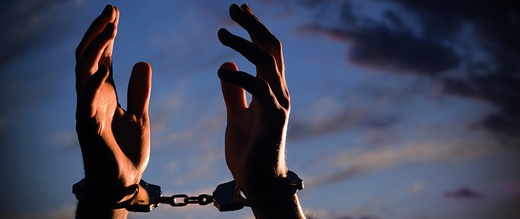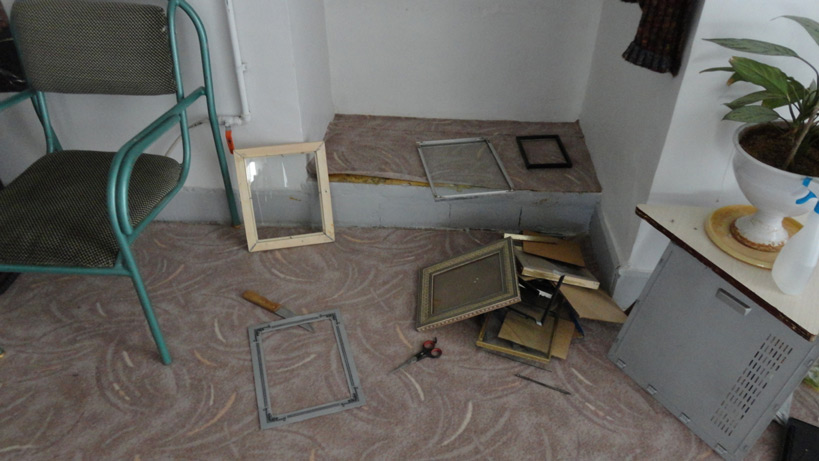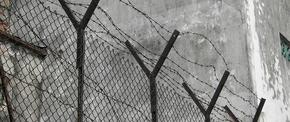The views expressed in our content reflect individual perspectives and do not represent the official views of the Baha'i Faith.
…the principles of the Divine religions can hardly be evaluated by the acts of those who only claim to follow them. For every excellent thing, peerless though it may be, can still be diverted to the wrong ends. – Abdu’l-Baha, The Secret of Divine Civilization, p. 70.
In addition to the broad economic campaign the fundamentalist Islamic regime in Iran currently continues to wage against the Baha’i community, crimes against individual Baha’is—government-sponsored, government-sanctioned and government-ignored—have made them the targeted victims of assaults, murders, and long, harsh and arbitrary prison sentences.
For thirty-five years the Baha’i community in Iran has endured a steady stream of harassment, attacks on homes and property, fines, periods of imprisonment and denial of justice in the courts—which have disrupted lives, made it increasingly impossible to earn a living, maintain financial security or make any progress in any profession, trade or business.
But in recent years these episodes have become more ominous and more prevalent, with threats painted on the walls of the homes and businesses of Baha’is threatening imminent murder if they do not close their business or move out of the town. Arson attacks sometimes follow these threats, and entire Baha’i families have been attacked by knife-wielding attackers in their homes, as well. At least 49 arson attacks against Baha’is have occurred since 2005, and at least nine murders of Baha’is have happened during that same period, without any prosecution or punishment for those hate crimes at all. Without linking these activities directly to the government, Baha’is know that the government does nothing to protect the Baha’is or track down those responsible for such actions. Indeed, if the Baha’is complain to the police or the courts, they very often are themselves arrested or threatened.
Following government raids on fourteen Baha’i homes in the Iranian city of Abadeh last year, for example, government agents summoned the occupants for questioning and urged them to leave town or face possible deadly attacks from city residents. During questioning, the agents told several Baha’is that local residents “don’t like you” and that “when you are on the street, they might attack you and your children with knives.” However–all evidence says the Iranian Government aggressively instigates that hate; while Abadeh residents have good relations with Baha’is.
During the past decade since 2005, the government has arrested more than 700 Baha’is. Dealing with the constant threat of arbitrary arrest imposes enormous strain on every Baha’i in Iran, but the heaviest burden on thousands of Iranian Baha’is occurs when they face unjust prison sentences ranging from a few days to ten or more years. Many have undergone repeated periods of imprisonment. In the mid-1980s, hundreds of Baha’is were typically imprisoned at any one time, with many being kept for a period, released and then re-arrested. Of course, this disruption of personal lives meant that many could not keep their jobs or maintain their businesses. Pressure from negative world opinion and international agencies temporarily reduced the number of Baha’is in Iranian prisons in the intervening years. However, since 2005, the number of arrested and imprisoned Baha’is has started to climb again, and currently the Baha’i World Centre estimates that more than a hundred Baha’is are serving long prison sentences—solely for the crime of being a Baha’i.
The Iranian government typically accuses and sentences Baha’is with false, trumped-up charges such as “spreading propaganda against the regime” (possessing any Baha’i literature); “disturbing national security” (believing in the Baha’i Faith and its principles); and “engaging in espionage” (having any communication with the Baha’i World Centre in Israel—the avowed national enemy of the Iranian regime). Ironically, the Baha’i World Centre is located in Haifa, Israel because the 19th-century Persian rulers in what is now Iran exiled Baha’u’llah, the founder of the Baha’i Faith, to a prison there.
The list of currently-imprisoned Iranian Baha’is includes the elderly, those with severe illnesses, mothers ordered to serve prison terms with their infant children, and all seven Baha’i leaders known as the Yaran, serving wrongful 20-year sentences—the longest of any current prisoners of conscience in Iran. Their arrests in 2008, and their sentencing in 2010, provoked an international outcry.
Without any question, since the Islamic Revolution of 1979 in Iran, the Baha’i community there has suffered a sustained and now systematic campaign of strangulation. Official documents and an unmistakable nationwide pattern of crimes against Baha’is both prove that this mounting persecution does not come solely from the random acts of over-zealous local officials or clergy–but instead, from a centrally-planned and systematic campaign directed from the very highest levels of the government.
This surreptitious campaign aims to cut off every avenue for Baha’is to earn a livelihood in Iran–to literally starve the Baha’is into extinction. The Iranian government’s campaign clearly constitutes a crime against humanity, as defined by the International Criminal Court:
Persecution against any identifiable group or collectivity on political, racial, national, ethnic, cultural, religious, gender . . . or other grounds that are universally recognized as impermissible under international law, in connection with any act referred to in this paragraph or any crime within the jurisdiction of the Court. (Part 2, Article 7, 1.h)
Iran’s Baha’i persecutions also qualify as an act of genocide under the same statute:
Deliberately inflicting on the group conditions of life calculated to bring about its physical destruction in whole or in part. (Article 6.c)
Those participating in these concerted actions against the Baha’is of Iran, and especially those in charge of such actions, can and should be prosecuted under this statute by the International Criminal Court.
These widespread purges—called cultural or religious cleansing—often foreshadow, just as they did in Nazi Germany, the mass genocide of an entire population.
Certainly you’ve heard the slogan that came out of the Holocaust: “Never again!” In Iran, the government’s long-term, surreptitious strategy to destroy the Baha’is without attracting undue international attention now asks the world and every person of conscience in it a new question: “Are we serious about Never Again?”


















Comments
Sign in or create an account
Continue with Facebookor